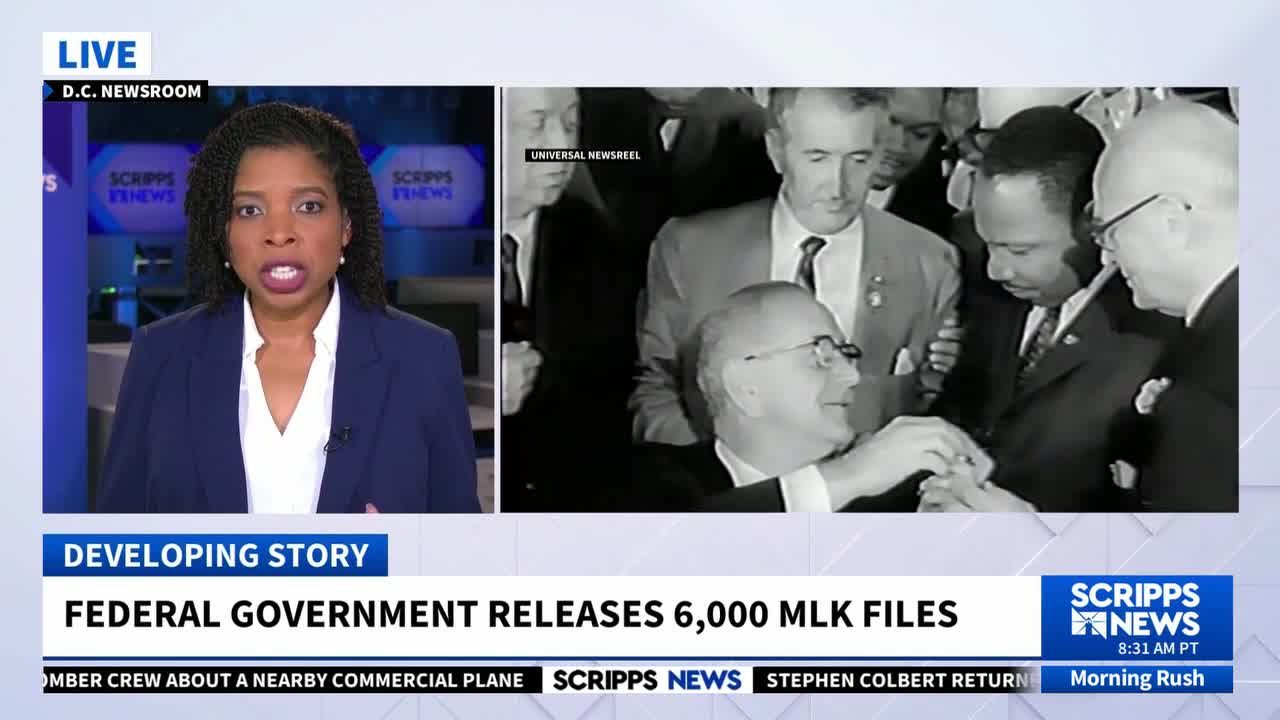The Trump administration has released more than 200,000 documents related to the 1968 assassination of civil rights leader Martin Luther King Jr.
King was fatally shot in Memphis, Tennessee. James Earl Ray later pleaded guilty to the killing and was sentenced to 99 years in prison. However, he later recanted and maintained his innocence until his death in 1998.
According to Director of National Intelligence Tulsi Gabbard, the newly released documents include details from the FBI’s investigation, internal memos, and discussions of potential leads. Some files also reference Ray’s former cellmate, who claimed the two discussed an alleged assassination plot.
The release has sparked controversy, with critics concerned the documents could be misinterpreted or used to tarnish King’s legacy.
RELATED STORY | Trump administration released FBI records on MLK Jr. despite his family's opposition
King’s two surviving children opposed the release.
"While we support transparency and historical accountability, we object to any attacks on our father’s legacy or attempts to weaponize it to spread falsehoods," a joint statement from Martin Luther King IlI and Bernice King says. "We strongly condemn any attempts to misuse these documents in ways intended to undermine our father’s legacy and the significant achievements of the movement."
However, there is some division within the King family. Attorney General Pam Bondi posted a photo with Dr. Alveda King — the niece of Martin Luther King Jr. — ahead of the release, saying she supported the decision to make the documents public.
While the files may offer new insight into the FBI's investigation, experts say they are unlikely to reveal major new information.
"The documents primarily detail information around James Earl Ray, the suspect, the alleged killer, as well as information from the wiretaps that were initiated around Dr. King for the FBI, especially J. Edgar Hoover, at the time, the leader of the FBI, to discern as much information as they could not only just about Martin Luther King Jr.'s personal life, but they were trying to figure out as much as they could about his political movement," said Dr. Jonathan Collins, a political science professor at Columbia University.




